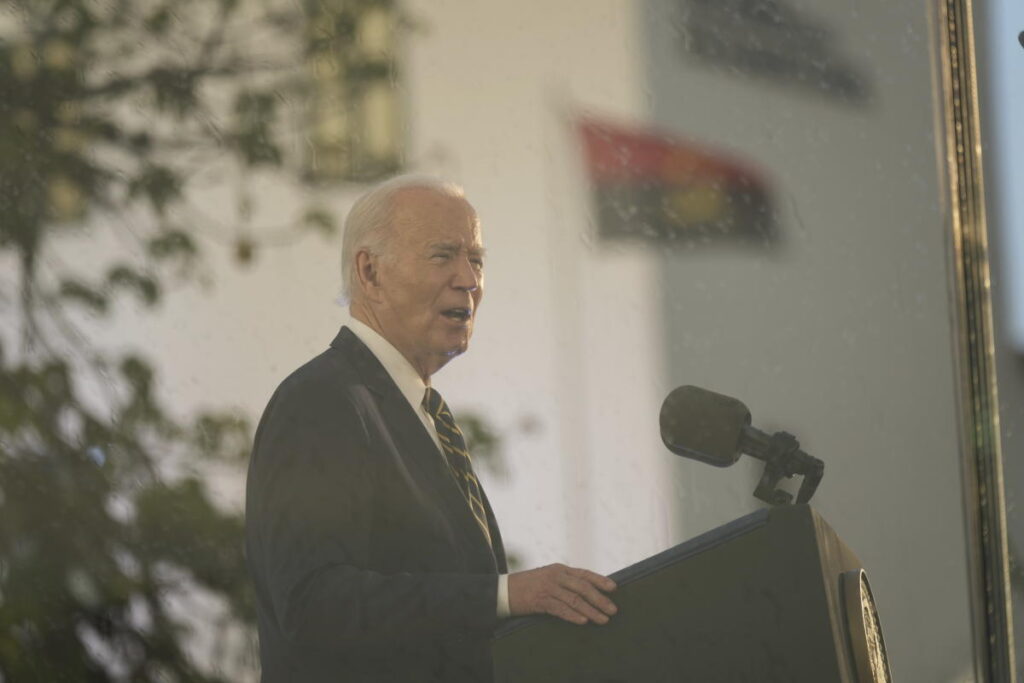U.S. President Joe Biden’s visit to Angola marks a significant emphasis on rail transport and infrastructure development in Africa, particularly through the promotion of the Lobito Corridor railway. This initiative involves substantial investment from the U.S. and its allies to refurbish approximately 800 miles (1,300 kilometers) of train lines across Zambia, Congo, and Angola. The primary goal of the Lobito Corridor is to enhance U.S. presence in a region abundant in critical minerals such as cobalt and copper, which are essential for manufacturing electric vehicle batteries, electronic devices, and clean energy technologies. By improving transportation links, the corridor is projected to contribute to the connectivity of southern Africa, particularly in establishing a robust link between the western and eastern coasts.
During his trip, Biden, who has long been an advocate for rail travel, expressed his enthusiasm for the Lobito Corridor, dubbing himself “probably the most pro-rail guy in America.” As the first sitting U.S. president to visit Angola, Biden showcased the strategic investment in the railway system, which he labeled as the largest U.S. commitment to a foreign train project. On his itinerary, Biden plans to visit Lobito on the country’s western coast, where he will engage with Angolan, Zambian, Congolese, and Tanzanian leaders. Together, they will explore the potential benefits of the corridor project, engaging with companies involved in telecommunications and infrastructure development, which are expected to bolster economic growth in the region.
Furthermore, Biden’s administration is poised to announce an additional $600 million investment toward projects associated with the Lobito Corridor, complementing contributions from various international bodies, including the European Union and the Group of Seven leading industrialized nations. Current logistics indicate that cargo transport from eastern Congo or Zambia takes approximately 45 days via truck to reach markets in South Africa, a process that the new rail corridor could reduce significantly to around 40 to 50 hours. This enhanced efficiency not only showcases a logistical improvement but also underlines the project’s potential economic impact on regional trade.
Another dimension of the Lobito Corridor is its strategic response to China’s growing influence in Africa. China has made significant investments into mining and processing minerals across the continent through its Belt and Road Initiative. Recently, China announced plans to renovate a separate railway linking Zambia to Tanzania’s east coast, a move interpreted by analysts as a direct reaction to the U.S. project’s ambitions. U.S. officials characterize the Lobito Corridor not merely as a counter to Chinese influence but rather as a means to engage in business development that fosters sustainable growth and investment in African communities over the longer term.
The U.S. administration envisions the Lobito Corridor as a model for expanding U.S. business interests across the globe. There is a clear strategy to promote projects that incentivize investments rather than simply relying on aid. This approach aims to make substantial impacts on local economies, advancing the idea that improving infrastructure can yield long-term developmental benefits. The potential success of the Lobito Corridor could pave the way for similar initiatives in other regions, addressing both economic development and geopolitical interests.
As the Lobito Corridor is a multi-year project, its completion will likely fall within the upcoming presidential term for the Republican candidate, Donald Trump, who is set to take office in January. Nonetheless, the Biden administration highlights a history of bipartisan support for investments that enhance African business interests. With both parties recognizing the importance of such initiatives, the corridor represents a collaborative effort to enhance infrastructure and economic opportunities across Africa while countering foreign influence through strategic investments. This multifaceted approach reflects the complexities of global trade and diplomatic relationships in the contemporary geopolitical landscape.

